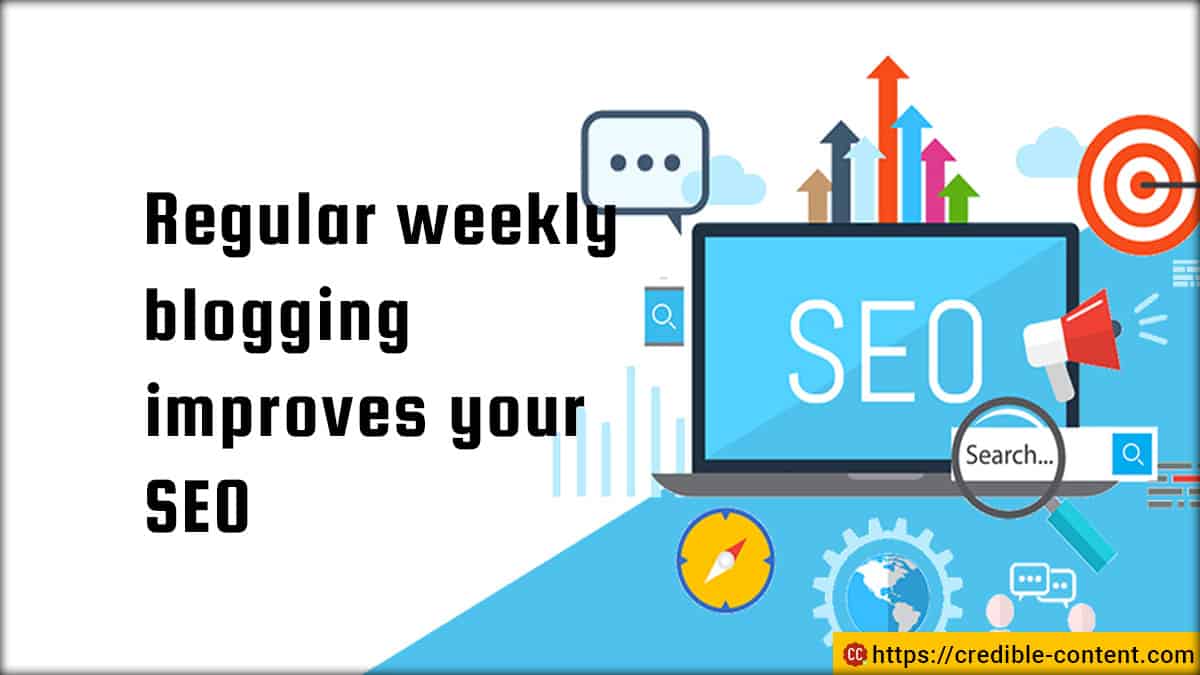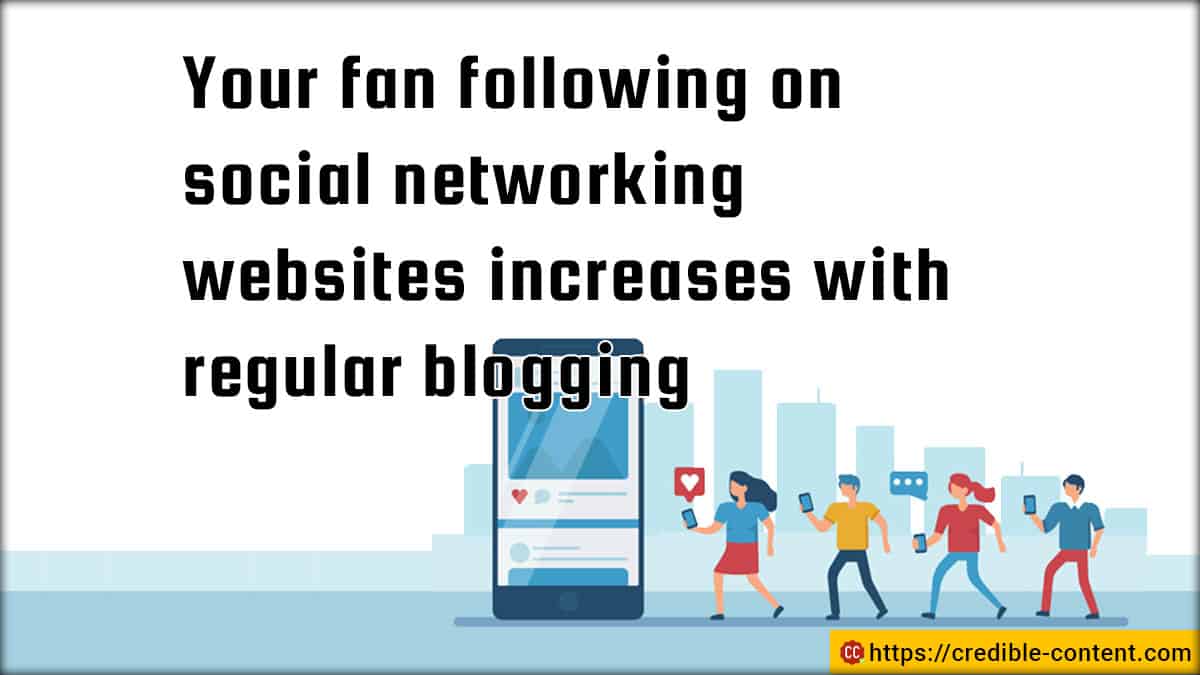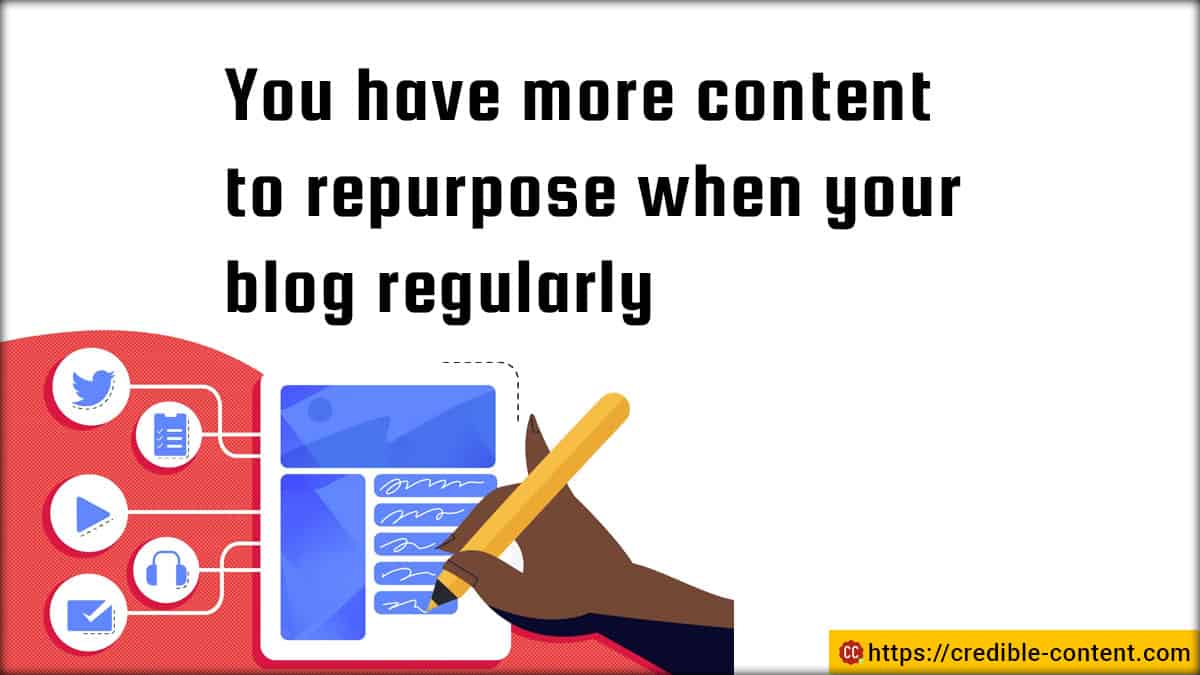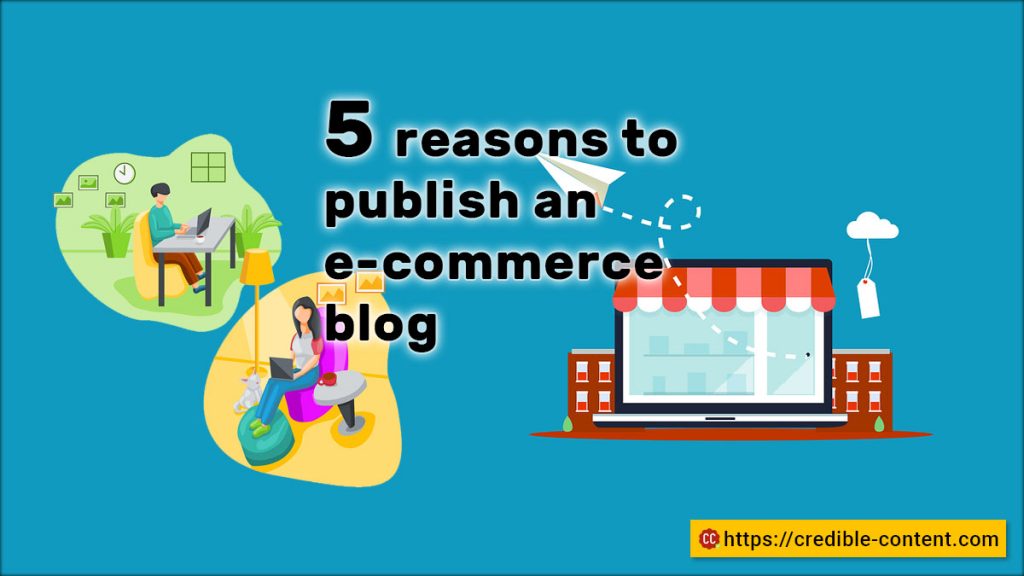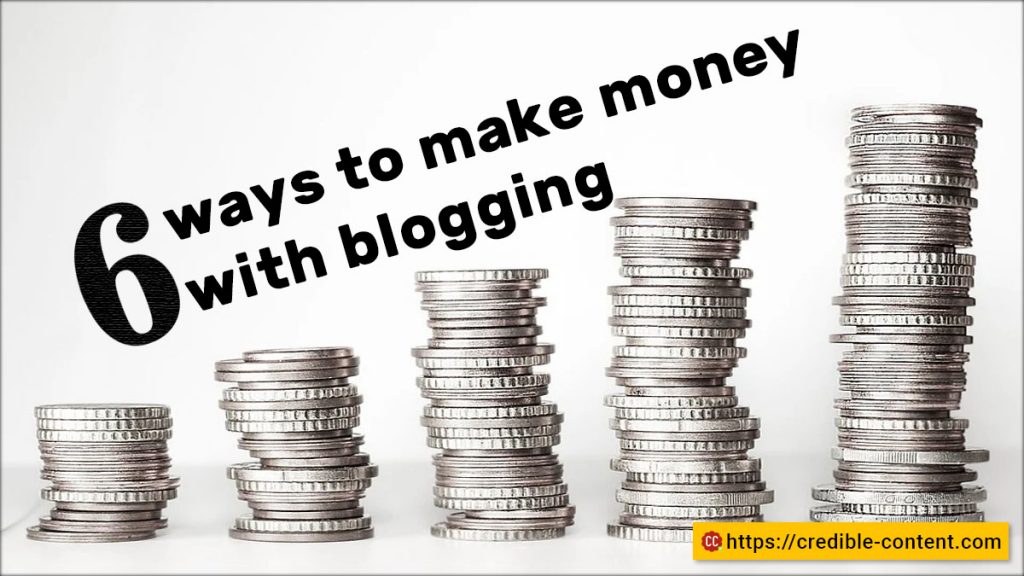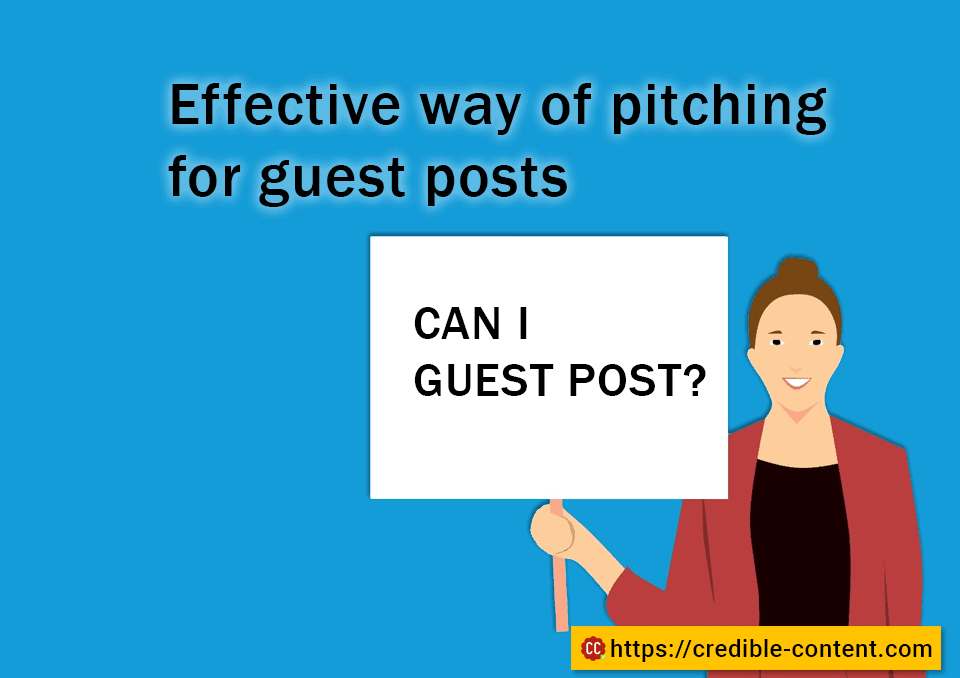Almost every month I publish a blog post prompting my readers to regularly publish blogs on their business websites. Blogs are automatic SEO magnets. They are structured in such a manner that you don’t need to do anything extra to improve your search engine rankings – provided you are using a standard WordPress theme that does not obstruct the Google crawler from accessing your content.
Ideally, you should publish a blog post every day. At least for SEO purposes. The more you publish, the faster your content gets crawled by search engines. You also cover more topics and increase your keyword. Talking about keywords, never overusing keywords when you are writing blog posts.
Since publishing a blog post every day may be an expensive undertaking when you need to hire a content writer or blog writer to write your blogs, my suggestion is, stick to a one-blog-post-per-week schedule and you should start experiencing some benefits immediately.
Just like everything else in life, there are caveats. Nonetheless, the fundamental factors that improve your search engine rankings as well as your conversion rate, is the quality of your content, the relevance of the blog posts that you publish. Stick to quality, stick to relevance, and everything else pretty much gets taken care of by itself, well almost.
1. A weekly blogging schedule improves your search engine rankings
Whenever I talk about search engine rankings, please always keep in mind that only the rankings that get you targeted traffic are worth considering. Improving your rankings for random keywords and search terms doesn’t help you much.
Carefully prepare a list of keywords around which you’re going to write and publish blog posts. Formulate all your titles and topics and headings and subheadings around those keywords. Never lose track of your keywords.
I have often seen that clients get happy because their rankings suddenly improve through regular blogging, but they don’t generate much business. This is because although the rankings are improving and also the traffic is increasing, the right people are not coming to the website or the blog. Hence, no business.
Anyway, how does publishing one blog post every week improve your search engine rankings?
You give Google more content to crawl and index. A greater number of your links are included in the search index. You are covering more keywords, especially the longtail keywords.
Consider the probability. What are the chances of you winning a lottery? Never buying a ticket, occasionally buying a ticket, or regularly buying a ticket? No, I’m not suggesting that you get addicted to buying lottery tickets and squander away all your savings. What I mean is, if you do more of something, provided you do something specific, the probability of a specific outcome increases.
The same way, the probability of your content appearing on Google search results increases if there are more links from your website in Google’s index.
Getting your content crawled by Google can be a big issue. Although the search engine is crawling millions of web pages, blog posts, images, videos, and social media posts, almost every hour, since it is crawling practically everything, it may take a month, or even more, for the Google crawler to visit your link.
Your website gets crawled randomly. There is no schedule. This is because the Google crawler doesn’t know when you publish content. Not everyone publishes a regular blog. Not everyone updates website content regularly. Hence, it is left on randomness to decide when your website gets crawled.
On the other hand, if you have a schedule and you stick to your schedule, Google learns to crawl your content based on that schedule. Hence, if you publish a new blog post every Wednesday, there is a greater chance that your website will be crawled every week, probably somewhere around Wednesday. If you publish a blog post every day, your website is going to be crawled every day. If you post multiple blog posts every day and you go on doing that for months, your website gets crawled multiple times in a day.
Hence, regularity gives you a significant edge over other websites that don’t publish content regularly.
Again, publishing a blog post every day, or posting multiple blog posts every day, can be expensive if you need to hire a content writer, but even a weekly schedule brings you immediate benefits. Within a couple of months, you will see a marked improvement in your crawl rate and targeted traffic.
2. You get more subscribers for your mailing list
Every business must build a mailing list. A mailing list is a list of email ids that people give you, knowingly, consciously, with their consent, and you use these email ids to keep them engaged fruitfully.
Most small businesses publish a newsletter to keep in touch with their subscribers.
You may like to read Why publish a newsletter for your business or organization.
The benefit of building your mailing list is that people agree to remain in touch out of their own choice. They come across your subscription box on your website/blog, they drop their email ID with their consent, and then you can regularly keep in touch with them. These people are interested to hear from you. They don’t mind if you send them emails. Every business wants to build such a mailing list.
I use my mailing list to broadcast the blog posts and web pages that I’m publishing on my website all the time.
When you publish a blog every week, you get more people to your website who are interested in your content and since they are interested in your content, they will subscribe to your newsletter so that they don’t miss your content.
This may not be an immediate benefit of publishing a blog post every week because a mailing list takes time to build, but it definitely kickstarts the process. As the proverb goes, “If there was a better time to start building your mailing list, it was a couple of years ago.”
3. Increase followers and visibility on social media
Entrepreneurs and businesses who share their own content on social media websites get more followers and enjoy better visibility. If you simply share content from other websites, although your followers will value that, the effect is not the same as publishing your own content and sharing your own knowledge and wisdom.
People who share their own insights get more followers and people take them more seriously. Chances of active engagement are also better. People may share your content on their own timelines, giving you more exposure.
Publishing a blog post every week on your business blog and then sharing it on your social media profiles also seed new conversation ideas.
4. You have more content to repurpose
You may like to read How to repurpose old content.
Repurposing old content means reusing your existing content through different formats and different presentations. Maybe you can pick up a single paragraph from one of your blog posts and then post it on LinkedIn. Maybe you can create a small visual out of the same paragraph and then post it on Instagram.
Complete blog posts can be created out of small portions of your existing content. For example, I can write a new blog post from the point “Increase followers and visibility on social media by publishing content regularly”, that I have discussed above.
After a while it becomes self-fulfilling. The more content you publish every week, the more content ideas you have for different content marketing needs.
5. You share your human side with your readers
In my case, there is not much difference between my writing style whether I’m writing for my main website or for my blog, but with most of the businesses, this is not the case.
The language that people use on the main website is different from the language they use on their blogs.
You can let your hair lose when you are writing blog posts. You don’t need to sound very official. Your language can be free flowing. It can be conversational. It can be friendlier.
This helps you make a connection with your visitors. You’re not some highflying executive or a salesperson just interested in making a sale. You’re interested in sharing your thoughts. You want to tell stories. You want to share anecdotes.
The trust factor is very critical on the Internet. When people come to your website and decide to do business with you, or decide to go away without doing business with you, you’re not there to talk to them personally. It is what you have written on your website or blog that does the talking. You cannot have conversations through monotonous and jargon-ridden interactions. There need to be friendly conversations to make people comfortable and to make them trust you. Weekly blogging on your website helps you achieve that.
6. You earn more backlinks
I have never approached other websites to put my links on them. All the backlinks that I have gathered, I have gathered naturally. People come across my content on Google and social networking websites, find it link-worthy, and then link to it.
Almost everyone is aware that one of the biggest benefits of getting quality backlinks is that it improves your search engine rankings. Google considers backlinks as endorsements. Why would people link to your content unless it offers something valuable?
People want to share to authority content. For example, if someone writes about the benefits or advantages of publishing a blog post every week and then wants to backup with another link, the author can link to my present blog post on the same topic.
As mentioned above, one of the most popular and well-known reasons for getting backlinks is improving search engine rankings. After quality content, it is the quality of your backlinks that has the biggest impact on your SEO.
You also get additional exposure. What if hundreds of websites share your link? What if your link is shared by a news website? What if you are quoted by a business reporter and along with your quotation, he or she also publishes a link to one of your blog posts? You get a ton of additional traffic.
In fact, people who don’t want to rely on Google put lots of energy into getting high quality backlinks just for the sake of generating traffic from all those websites.
7. Establish yourself as an expert or an authority
By publishing a blog post every week and sharing your knowledge and wisdom, you establish yourself as an authority on your subject.
I am a content writer. People hire me for my content writing and copywriting services. It definitely helps them decide in my favor when they see that I have published so much content on the topic of content writing and copywriting.
Prospective clients come across my blog posts on Google or LinkedIn, they come to my blog and see how much I have written on the topic, they get impressed, and then they contact me for work. Most of my work comes through people who first see my blog.
Although I don’t offer my services as a content consultant, most of my clients want to know so much about what to publish and how to publish, that these days, I have started charging them for the time I spend talking to them. It deters some clients for striking up long conversations about their content, but it also encourages many clients to pay for my time for my consulting services.
Publishing a blog post every week isn’t very difficult even if you have to pay for every blog post. The advantages outweigh the cost. Of course, it would be easier if you could write and publish blog posts on your own, but then, you may be good at your profession, but it may not be possible for you to come up with high-quality content, especially on a weekly basis. I know a client who is an excellent writer and in fact, in her field, she writes better than I do, but she cannot be consistent. This is because she is not a professional writer. She is a technology consultant.
Anyway, although there are some great, immediate benefits of publishing a blog post every week, if you can afford it, at least for the first 2-3 months when you kickstart your content marketing campaign, try to publish a blog post every day. This gives you lots of content to offer to Google. Your website gets crawled every day and hence, new content becomes available to your target audience faster. You can maintain the buzz around your website on social networking websites. Your search engine rankings improve within 40-60 days.


